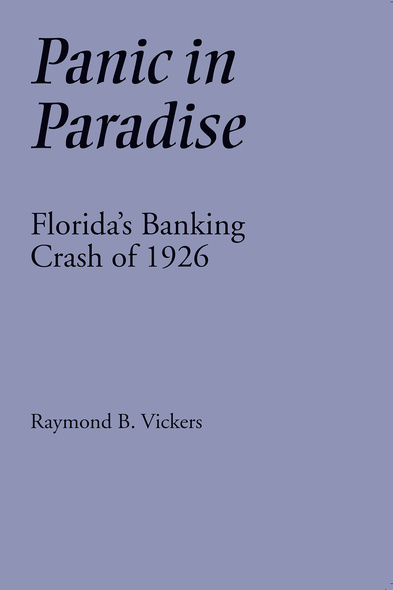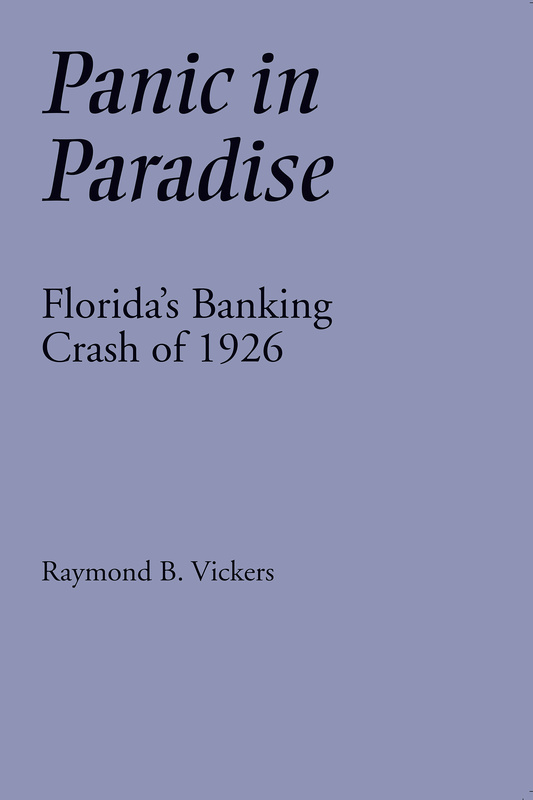Panic in Paradise is a comprehensive study of bank loan failures during the Florida land boom of the mid-1920s, during the years preceding the stock market crash of 1929. Florida and Georgia experienced a banking panic in 1926 when, in a ten-day period in July, after uncontrollable depositor runs, 117 banks closed in the two states. Uninsured depositors lost millions, and several suicides followed the financial havoc. This volume makes use of banking records that were legally sealed for almost 70 years and provides a shocking story of professional corruption and conspiracy.
"An extraordinary and unusual book that makes an important contribution to our understanding of banking history and the general economic history oof the 1920s. The banking collapse in the Southeast is virtually unknown, even to specialists in banking and financial history. No one who is interested in the banking history of the United States will want to miss this book." -- Eugene N. White, Rutgers University
"An exhaustively researched pioneering study; brilliant investigative reporting." -- Jack Blicksilver, Georgia State University
Excellent and detailed. . . . Reads almost like a fiction thriller.' —Tampa Tribune
This dramatic and pioneering book . . . makes important contributions to Florida and American history [and] it is a well-written, compelling account that is given added veracity [because] Vickers forced reinterpretation of Florida’s bank secrecy law. His book should find a place on the shelves of all Floridians interested in the colorful history of their state.' —Tallahassee Democrat
This book is a story of mismanagement, fraud, government corruption, and cover-up in the banks of Florida and Georgia from 1926 to 1929. Vickers tells a classic tale of evil bankers deliberately channeling depositors’ funds into their own development projects while bribing government officials to help hide their crimes. One of the most interesting aspects of the book is the author’s own role in ‘putting the criminal away.’ An attorney, economic historian, and past assistant comptroller of the state of Florida, Vickers had to use all of his skills. . . . In addition to the usual problems, . . . the author faced the state controller’s opinion that the release of the records ‘was a crime.’ Vickers’ legal efforts and skillful use of publicity caused the reversal of that decision.' —American Historical Review
Raymond Vickers, whose background includes a law degree, a Ph.D. in history, and four years as assistant comptroller of Florida (which made him Chief of Staff of the Florida Department of Banking and Finance) is uniquely qualified to provide a thorough disclosure of the Florida banking debacle of the 1920s. His long-term research and successful lawsuits designed to force the disclosure of sealed records have brought him to the attention of such major media outlets as the Washington Post and the Wall Street Journal, in which Vickers said: "I haven't found a single bank failure that didn't involve a conscious conspiracy to defraud."





